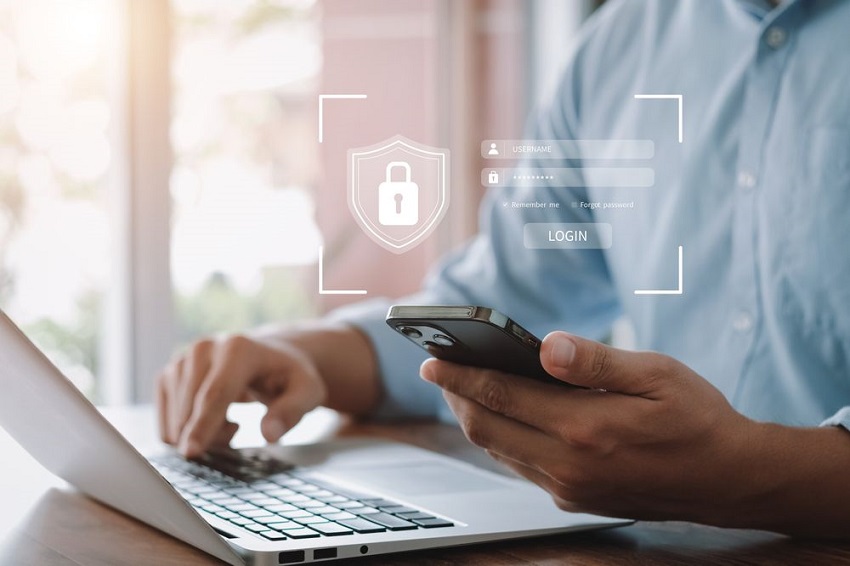In today’s digital age, where almost every aspect of our lives is connected to the internet, ensuring good internet safety practices has become more critical than ever. The online world offers numerous opportunities and conveniences, but it also comes with various risks and threats that can compromise our privacy, data, and even our personal safety. In this article, we will delve into the importance of good internet safety and explore some practical tips to protect ourselves online. The content is developed by internetdiscada.com
Understanding Internet Safety
The first step in maintaining good internet safety is understanding what it means and why it matters. Internet safety refers to the measures and precautions individuals take to protect their digital identity, data, and devices while using the Internet. It involves being aware of potential threats and risks and implementing strategies to mitigate them effectively.
The Significance of Internet Safety
The internet has undoubtedly revolutionized how we live, work, and communicate. However, this interconnectedness also exposes us to various cyber threats, such as hacking, phishing, identity theft, and malware attacks. Good internet safety practices are crucial to safeguard ourselves and our personal information from falling into the wrong hands. Discover the internet safety tips for kids.
Tips for Ensuring Good Internet Safety
1. Use Strong and Unique Passwords
One of the simplest yet most effective ways to enhance internet safety is by using strong and unique passwords for all online accounts. Avoid using common passwords and consider combining uppercase and lowercase letters, numbers, and special characters.
2. Enable Two-Factor Authentication (2FA)
Two-factor authentication adds an extra layer of security by requiring users to provide two forms of identification before accessing an account. This could be something they know (password) and possess (a one-time code sent to their mobile device).
3. Keep Software and Apps Updated
Software and app developers regularly release updates to fix security vulnerabilities. Ensuring that all your software and apps are up to date minimizes the risk of exploitation by cybercriminals.
4. Be Cautious with Email and Links
Phishing emails are common for cybercriminals to trick individuals into revealing sensitive information. Be cautious when clicking on links in emails and avoid providing personal details unless you know the sender’s legitimacy.
5. Use Secure Wi-Fi Networks
When accessing the internet outside your home, use secure Wi-Fi networks that require passwords. Public Wi-Fi hotspots are often unsecured and can be easily targeted by hackers.
6. Be Mindful of Social Media Sharing
Be cautious about the information you share on social media platforms. Oversharing personal details may make you vulnerable to identity theft and cyber threats.
7. Regularly Back Up Data
Backing up your data regularly ensures that you won’t lose everything in case of a cyberattack or hardware failure. Consider using secure cloud storage for added protection.
8. Install Antivirus and Security Software
Antivirus and security software are essential for protecting your devices from malware, viruses, and other online threats. Keep the software updated for optimal performance.
9. Educate Yourself and Your Family
Stay informed about the latest internet safety practices and educate your family members, especially children, about the potential risks online. Open communication is vital in fostering a safe online environment for everyone.
10. Avoid Suspicious Websites
Exercise caution when visiting unfamiliar websites, especially those that prompt you to download files or enter personal information. Stick to reputable sources to reduce the risk of encountering malicious content.
The Power of Digital Literacy
Understanding internet safety goes hand in hand with digital literacy. Digital literacy refers to the ability to use technology effectively and responsibly. Improving our digital literacy makes us more adept at navigating the online world while staying safe.
The Role of Parents and Educators
Parents and educators play a significant role in promoting internet safety among children and young adults. Incorporating digital literacy and internet safety education into curriculums and family discussions empowers the younger generation to make responsible choices online.
In conclusion, good internet safety is paramount to our digital lives. By understanding the significance of internet safety and implementing practical tips, such as using strong passwords, enabling two-factor authentication, and being cautious with email links, we can protect ourselves from cyber threats and enjoy a safer online experience.
FAQs
FAQ 1: Why is internet safety important for children?
Internet safety is crucial for children because they are vulnerable to online risks, such as cyberbullying, inappropriate content exposure, and interaction with strangers. Ensuring good internet safety practices helps protect children from potential harm and teaches them responsible online behavior.
FAQ 2: Is using a password manager safe?
Using a reputable password manager is generally considered safe. Password managers employ strong encryption methods to store passwords securely. However, it is essential to choose a reliable and well-established password manager to ensure the highest level of security.
FAQ 3: Can internet safety prevent all cyber threats?
While good internet safety practices significantly reduce the risk of falling victim to cyber threats, they cannot guarantee complete protection. Cybercriminals are constantly evolving their tactics, making it essential to stay vigilant and updated on the latest security measures.
FAQ 4: How often should I back up my data?
The frequency of data backups depends on your usage level and the data’s importance. For critical data, consider daily or weekly backups. For less crucial data, monthly backups may be sufficient.
FAQ 5: What should I do if I suspect a phishing attempt?
If you receive an email or message that seems like a phishing attempt, do not click on any links or provide any personal information. Instead, report the suspicious activity to the organization the sender is pretending to represent and delete the message.





